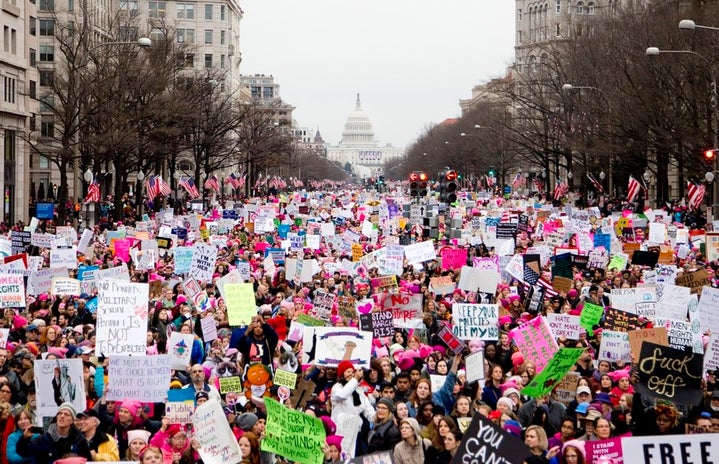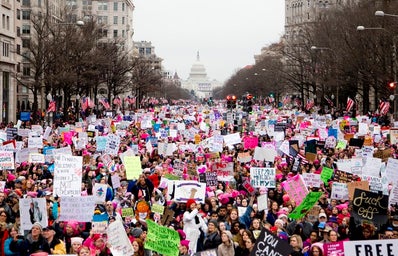There is an irony to UCLA, one of the country’s most diverse schools, sitting fewer than ten miles away from the epicenter of one of the country’s least diverse industries. Living and learning on campus, I am surrounded by proof that a person’s background – cultural, socioeconomic or otherwise – does not define their aptitude for success. Hollywood, on the other hand, makes a case for the opposite. Awards season is notorious for perpetuating the dominance of white men, and this year, the Academy drew backlash once again for excluding women and people of color from its list of nominations. As demoralizing as the news looked on paper, the Academy also took a step in the direction of progress by awarding Parasite, a Korean film with an all-Asian cast, with four major titles. The victory served as a reminder that, while the structure of any given industry may reflect societal values, individuals within an industry have the power to change society for the better. Now, in the spirit of International Women’s Month, I want to recognize the Asian-American female leaders who did just that. Here are 5 women who defied convention, sparked conversation and fundamentally altered how we live, think and interact.
- Sandra Oh
-
Honored on the 2019 Time 100 List as a pioneer of her industry, Sandra Oh refuses to succumb to stereotypes and Hollywood race politics. Her breakout role as Dr. Christina Yang on Grey’s Anatomy proved her versatility and capacity for portraying complex characters; it also transformed one of very few Asian-Americans television actors into a widely recognized and respected cultural figure. After leaving Grey’s, Oh signed to the show Killing Eve. Her performance as the main protagonist made her the first Asian in nearly forty years to win the Golden Globe for Best Actress. That same night, she became the first Asian to host the awards show. The event served as a testament to her influence over her industry and established her as a leading force behind Hollywood’s trajectory towards diversity.
- Amy Tan
-
Amy Tan’s highly acclaimed novel, The Joy Luck Club was to generations past what Crazy Rich Asians is to ours: a celebration of a culture that many are connected to, but few remain immersed in; a narrative that encouraged mainstream audiences to consider and empathize with the Asian-American experience; and, most notably, a work that defied industry race barriers and reached large-scale success with a full cast of Asian characters. Tan from drew her own biography to create a realistic story, exploring the challenges faced by immigrant parents and the children they raised in America. With an emphasis placed on mother-daughter dynamics, the novel is also an ode to female strength, resilience and power.
- Patsy Takemoto Mink
-
As the first Asian-American woman to serve in Congress, Patsy Takemoto Mink was a champion for two historically underrepresented groups. She advocated for an education system that supported women, famously passing the Women’s Educational Equity Act and Title IX of the 1972 Educational Amendments. The former secured $30 million a year to fund the promotion of gender equity in schools, the expansion of job opportunities for women and the removal gender stereotypes from educational materials; the latter prohibited sex-based discrimination in public schools. Mink also fought for the rights of immigrant families, sought to spread awareness about the Japanese internment camps of World War II and developed legislation to improve the economies of American Pacific territories. Her accomplishments reflect her dedication to improving the lives of Americans as a whole, rather than simply furthering the interests of her state or party.
- Chieng-Shiung Wu
-
For her far-reaching contributions to the field of nuclear physics, Chieng-Shiung Wu has been nicknamed “The Chinese Marie Curie.” She made a reputation for herself with her work on the Manhattan Project, and followed it with a lifetime of groundbreaking research. As her accomplishments and accolades accumulated, she became the first woman to teach at Princeton and hold a tenured position at Columbia. Later in life, she made it her mission to increase female and Asian participation in STEM fields, doing advocacy work and creating an education foundation that awarded scholarships to young Taiwanese scientists.
- Cecilia Chung
-
The political stage rarely sees Asian-Americans in the spotlight, and Cecilia Chung’s impact as a civil rights leader and activist is particularly noteworthy because she is also transgender and HIV-positive. In her hometown of San Francisco, she led the Pride Celebration’s Board of Directors, chaired the Human Rights Commission and founded programs to support the transgender community. When the city appointed her to its Health Commission, she passed legislation that established San Francisco as the first city to cover gender reassignment surgery for uninsured transgender patients. Now, Chung is a member of the Presidential Advisory Council on HIV/AIDS and occupies a leadership role at the Transgender Law Center.
These five Asian-American women, despite doing distinct work, all contributed to the promotion of diversity and the empowerment of minority groups. Their success and influence is evidence that society is powered by intrepid individuals, and inspires me to pursue my passions with optimism and zeal. Happy International Women’s Month: here’s to trailblazers both past and present!



